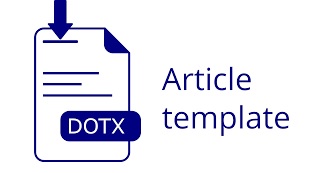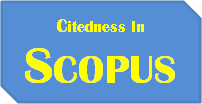The Role of Bureaucratic Behavior on Increasing The Effectiveness of Educational Policies : Perspective of Robbin's Theory Development
DOI:
https://doi.org/10.30656/sawala.v10i2.5570Keywords:
Bureaucratic Behavior, Behavioral Relationship Patterns, Policy EffectivenessAbstract
The concern for the implementation of national education is the decline in the competitiveness of national education. Although the Human Development Index has increased nationally, when compared to ASEAN countries and globally. According to the Central Statistics Agency (BPS) in 2020, Indonesia is ranked 6th in ASEAN and 111th out of 186 countries (UNDP, 2019). Indonesian education is in a position below Singapore, Brunei Darussalam, Malaysia, Thailand and the Philippines. Therefore, the purpose of this research is to examine the role of bureaucratic behavior on the effectiveness of policies to expand access to education evenly in the perspective of Robbins' theory development. The research method is a case approach with qualitative analysis using semi-structured interviews, focus group discussions (FGD) and documentary reviews as data collection instruments. Altogether, 45 in-depth interviews.
.The results show that behavioral analysis at the individual, group and organizational levels as stated by Robbins (2010) has implications for increasing effectiveness through increasing employee motivation, job satisfaction, cooperation, public involvement in the education sector. However, it cannot describe how to deal with paternalism, behavioral deviations, bureaucratic swelling and so on, in a concrete way. As the findings of the study, it was determined "Patterns of behavioral relationships" as a novelty of organizational behavior analysis with implications for improving behavioral tendencies as a driving and inhibiting factor for the success of the expansion and equity of education. Behavioral relationship patterns can also moderate behavioral elements in increasing effectiveness.
References
Amal, B. K., (2018) Factors Affecting Education Policy Implementation
Ambarwati, D. L. (2015) Study of high school dropouts based on accessibility, socioeconomic conditions, and parental attention in Plandaan District, Jombang Regency/Dwi Lusi Ambarawati (Doctoral dissertation, State University of Malang).
Ardian, N. (2019) The Influence of Performance-Based Incentives, Work Motivation, and Work Ability on UNPAB Employee Work Performance. JEPA, 4(2), 119-132.
Bustomi, M. J. F, (2012) Inequality in education between districts/cities and its implications in Central Java Province, Economics Development Analysis Journal, 1(2).
Edwards III, George C., (1980) Implementing Public Policy. Washington: Congressional Quarterly Inc.
Fatah, N. (1999) Analysis of the Relationship between Funding for Elementary School Education and the Quality of Learning Processes and Outcomes. Journal of the Pulpit of Education, 18(3), 51-56.
Fauzi, A. (2020). Quality Cost Analysis in Improving Education Competitiveness. See: Journal of Educational Management, 1(1), 51-62.
George & Jones, (1996) Organizational Behavior, Texas University
Greenberg, J., & Baron, R.A. (2003). Behavior in organizations: Understanding and managing the human side of work (5th Ed.), Upper Saddle River, NJ: Prentice Hall
Ibrahim, I. (2020) The Role of Mo'odelo's Leadership Competencies in the Implementation of the New Pattern Education and Training Policy for the Quality of Public Services. Journal of SIAP BPSDM Gorontalo Province, 1(1), 23-27.
Hidayat, R., & Cavorina, A. (2017) The effect of individual characteristics and work environment on employee performance of PT Cladtek BI Metal Manufacturing. Journal of Applied Business Administration, 1(2), 337-347.
Hakim, L, (2016) Equitable access to education for the people in accordance with the mandate of Law Number 20 of 2003 concerning the National Education System, EduTech, Journal of Education and Social Sciences, 2(1)
Itasari, E. R. (2018). Implementation of the Fulfillment of the Educational Rights of Indonesian Citizens on the Land Border Between Indonesia and Malaysia,Scientific Journal of Social Sciences, 4(2), 181-186.
Iskandar, A., & Subekan, A, (2018) The Effect of Personal Knowledge, Job Procedure and Technology on Employee's Performance in Public Organizations (The Effect of Personal Knowledge, Job Procedure and Technology on Employee's Performance in Public Organization) Indonesian Science Management Research Journal (JRMSI), 9(2).
Kurniawan, r, (2018), Effect of fiscal decentralization on education and health in Indonesia (Doctoral dissertation, Gadjah Mada University).
Khoiriyah, A. A. R. (2020), The Role of the Bureaucracy and the Implementation of Formal Elementary and Secondary Islamic Education Policies in the New Order Era. INNOVATIVE: Journal of Educational, Religious and Cultural Research, 6(2), 146-148.
Kurniawan, M. (2013) The effect of organizational commitment, organizational culture, and job satisfaction on the performance of public organizations (empirical study on the Kerinci district government skpd), Journal of Accounting, 1(3).
Larasati, D., & Saputra, H (2014) Analysis of the Effect of Fiscal Decentralization on Education Accessibility in Indonesia in the Period before and After Fiscal Decentralization. Journal of BPPK: Financial Education and Training Agency, 7(1), 19-31.
Lestari, A., (2016). The effect of participatory leadership and organizational commitment on the effectiveness of implementing strategic plans at Madrasah Aliyah in Sukabumi Regency, West Java, Journal of Educational Administration, 23(1).
Mudhofar, M. Performance Allowance, Motivation, Employees’ Work Achievement and Organizational Performance among Goverment Employees, JKAP (Jurnal Kebijakan dan Administrasi Publik), 25(1), 74-89.
Mulyaningsih, M, (2018) Bureaucratic Behavior Analysis on Organizational Effectiveness. Manage: Socio-Political Journal, 1(2), 173-186.
Ndraha, Taliziduhu, (1997) Organizational culture, Rineka Cipta. Jakarta
Notoatmodjo, Soekidjo. 2002. Health Research Methodology. Jakarta: Rineka Cipta
Nurfitriani, N., & Hartarto, R. B. (2018). Does More Spending on Education Matter to Human Capital Formation? Study Case of Bengkulu Province, Indonesia. JKAP (Jurnal Kebijakan dan Administrasi Publik), 22(1), 63-71.
Pratama, A. B., & Nurhidayah, A. (2019). Does Public Service Motivation Matter to Employees’ Performance and Organizational Commitment in Sub-district Offices?. JKAP (Journal of Policy and Public Administration), 23(1), 1-15.
Pangestuti, D. C. (2019) Analysis of work experience, competence, education and training on career development by intervening work performance. Journal of Management and Business Research (JRMB) Faculty of Economics UNIAT, 4(1), 57-68.
Rachmadhani, A. (2020) The role of the bureaucracy in the implementation of national education policies. At-turots: Journal of Islamic Education, 2(1), 1-10.
Robbins, Stephen P. and Timothy A. Judge, 2009, “Organizational Behaviorâ€, Salemba Jakarta
Rokhmani, L. (2009) Analysis of Indonesia's Human Development Index (Education Investment as National Competitiveness).
Rosmaini, R., & Tanjung, H. (2019) The Influence of Competence, Motivation and Job Satisfaction on Employee Performance. Maneggio: Scientific Journal of Masters in Management, 2(1), 1-15.
Santoso, (1997) New Order Government Bureaucracy Cultural and Structural Perspective. PT. Raja Grafindo Persada,: Jakarta
Sumahdumin, D. (2010). The effectiveness of the implementation of quality management system policies on leadership education and training (Case Study of Implementation of Level III Leadership Training at the Regional Education and Training Board of West Java Province). Journal of Administrative Sciences: Media Science Development and Administrative Practice, 7(1), 02.
Solichin, M., (2015) Implementation of Educational Policies and The Role of the Bureaucracy. Religion: Journal of Islamic Studies, 6(2), 148-178.
Sitorus, M. (2007) The Influence of Communication, Resources, Disposition, and Bureaucratic Structure on the Implementation of Educational Policies (Case Study for the Establishment of the Tobasamosir Regency Education Council). Journal of Administrative Sciences: Media Science Development and Administrative Practice, 4(1), 06.
Subakti, A. G. (2013) The effect of motivation, satisfaction, and work attitude on employee performance at Café X Bogor. Binus Business Review, 4(2), 596-606.
Subekti, M., Faozanudin, M., & Rokhman, A, (2017) The effect of communication, resources, disposition and bureaucratic structure on the effectiveness of the implementation of the school operational assistance program at the State Elementary School education unit in Tambak District. The Indonesian Journal of Public Administration (IJPA), 3(2), 58-71.
Suratman, B. Soesatyo, Y., & Soejoto, A, (2014) Analysis of Factors Affecting Education Inequality, Journal of Educational Sciences, 20(2).
Sitorus, M. (2007) The Inflzuence of Communication, Resources, Disposition, and Bureaucratic Structure on the Implementation of EDUCATION Policies (Case Study for the Establishment of the Tobasamosir District Education Board). Journal of Administrative Sciences: Media Science Development and Administrative Practice, 4(1), 06.
Weber, Max. (1947) The Theory of Social and Economic Organization. Translated by A.M. Henderson and Talcot Parsons, New York: Oxford University Press
Widodo, A. P., Zuhri, S., & Djani, D. (2020) Implementation of Transformative Leadership Style in Improving Education Competitiveness. Ta'allum: Journal of Islamic Education, 8(2), 309-332
Yenny, M, (2008) Effect of Fiscal Decentralization on Education Development in Indonesia Journal of Economic Policy, 4(1), 63-75.









